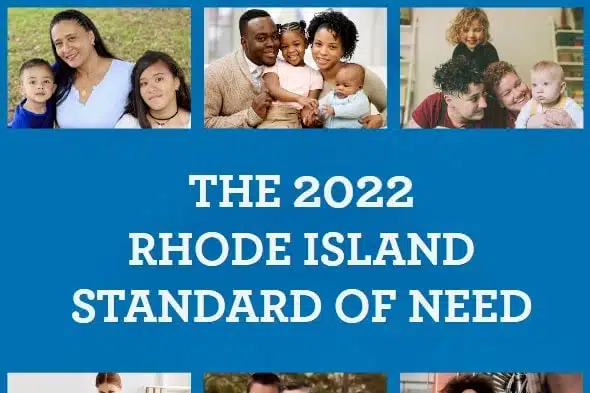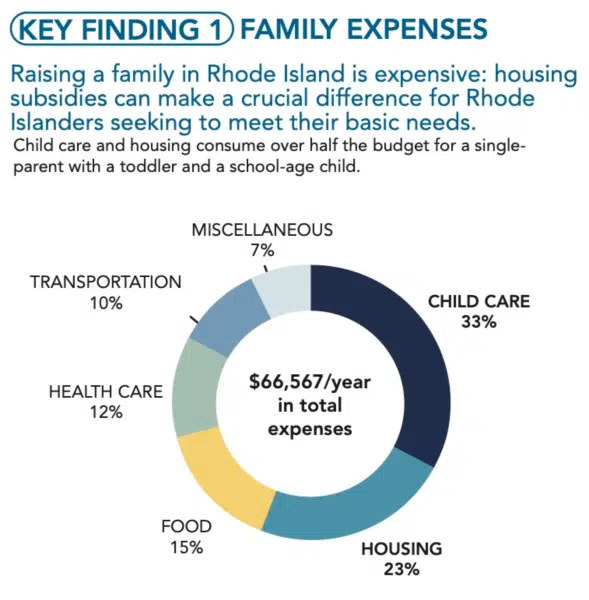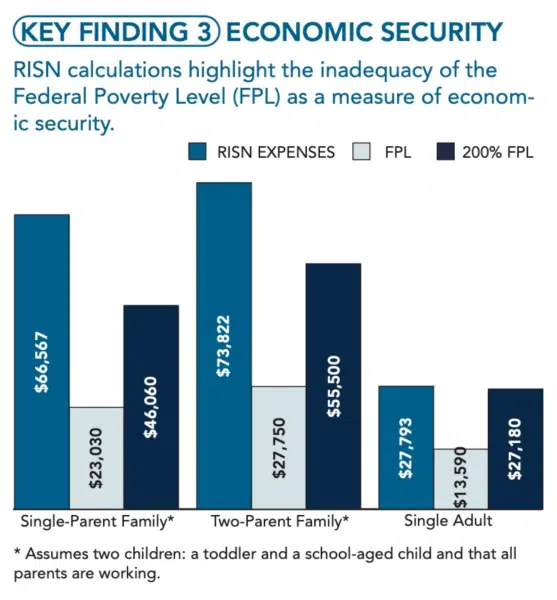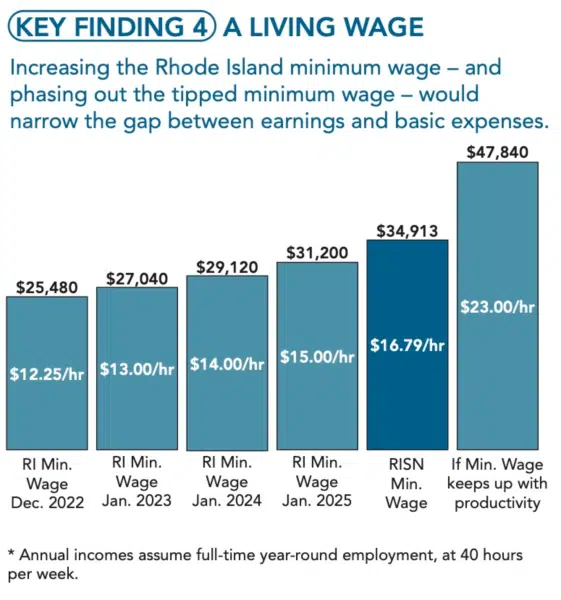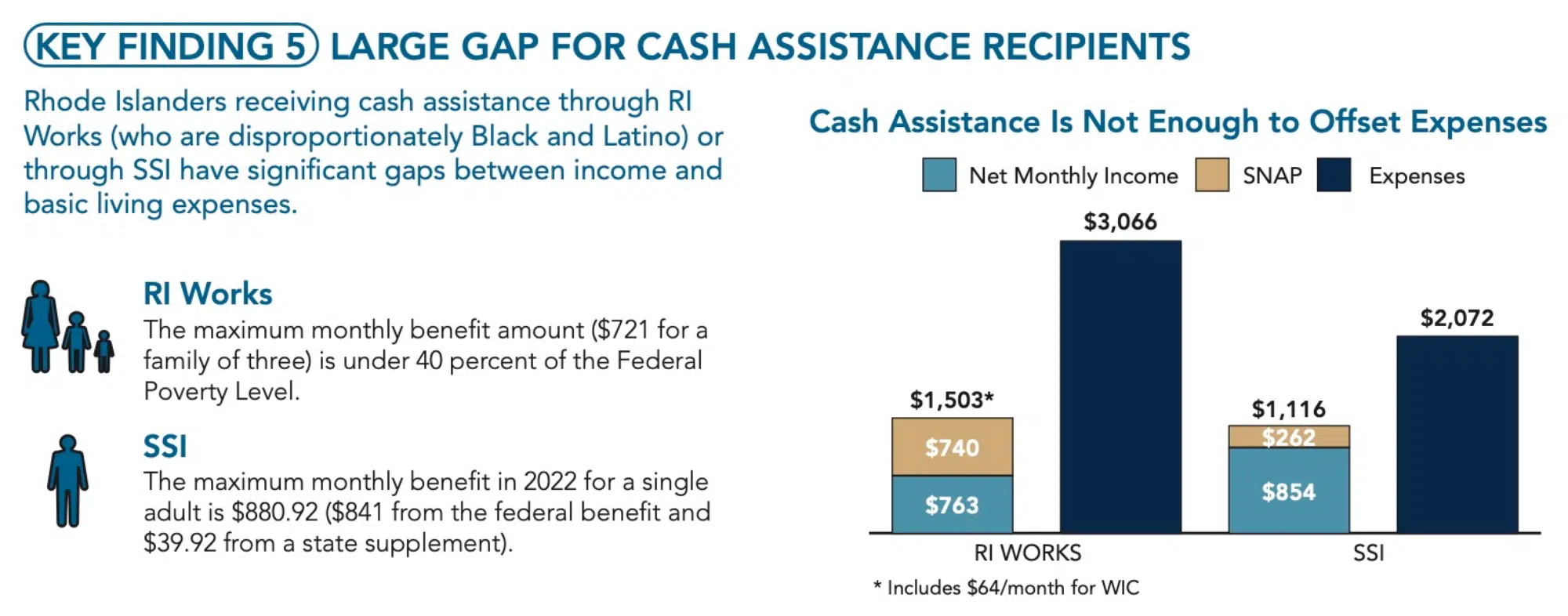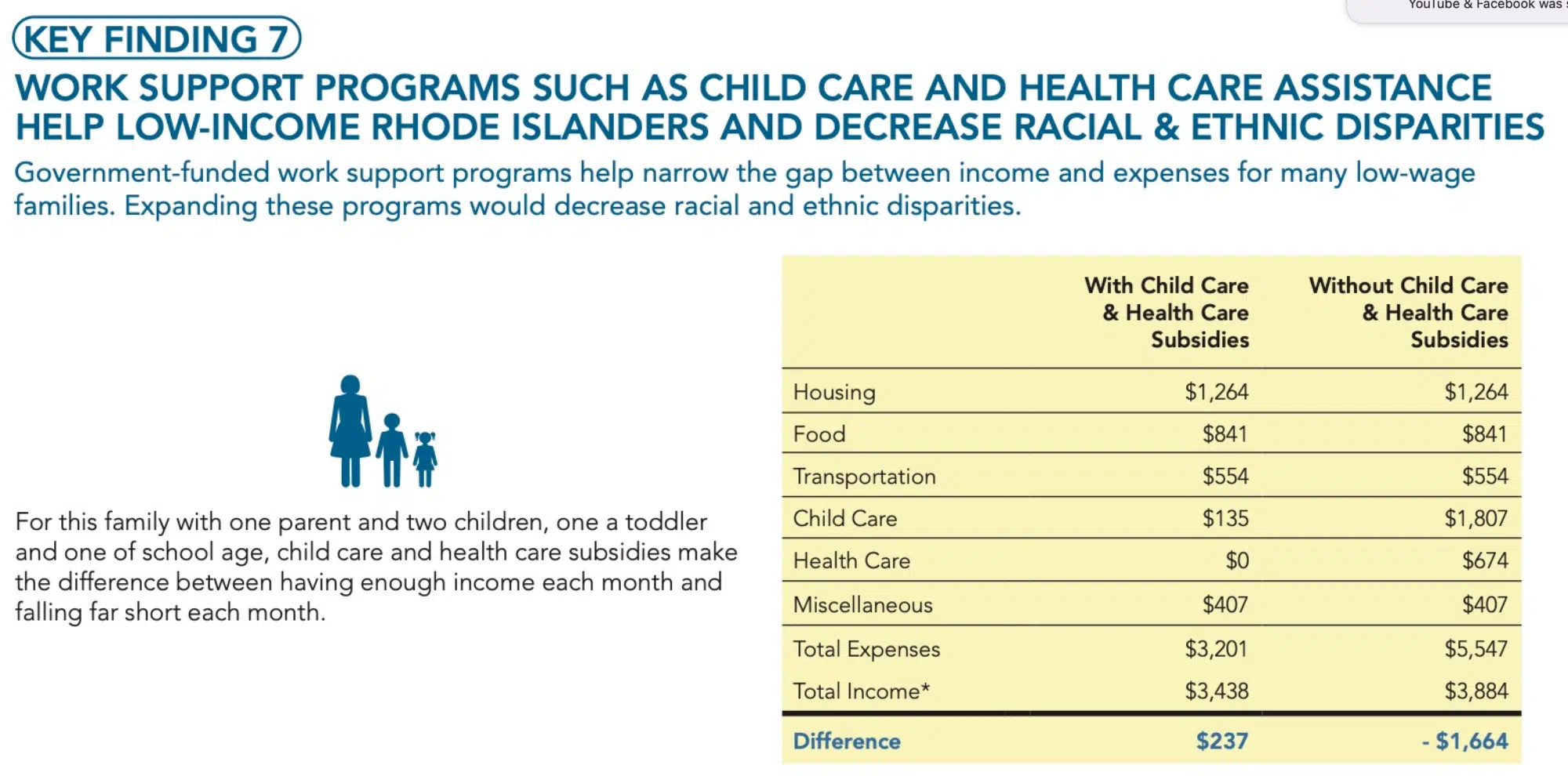EPI’s Standard of Need reports key findings on poverty
By Steve Ahlquist for UpRiseRI
A new report from the Economic Progress Institute (EPI) calculates how much money is required for low-income Rhode Islanders to pay for basic expenses including food, housing, healthcare, transportation and childcare.This
calculation, known as the Rhode Island
Standard of Need (RISN),
is used by legislators, nonprofits, advocates, and others to understand the
true level of economic security in the state.
“The RISN report is a stark reminder that far too many Rhode
Islanders aren’t earning enough to make ends meet,” said Weayonnoh Nelson-Davies,
Executive Director of the Economic Progress Institute. “Rhode Island is an
amazing state, but it’s expensive to live here, especially if you’re raising a
family. The challenge is even more profound for communities of color and women
of all races, who represent a larger portion of low-income and modest-income
earners.”
RISN’s finding were reported by Alan Krinsky,
EPI’s Director of Research and Fiscal Policy, at a press conference Thursday
morning held at the United Way of
Rhode Island offices in Providence. Director Krinsky presented
seven key findings:
Key Finding 2, Household Earnings: Many Rhode Island households do not earn enough to make ends meet, a reality experienced by more Latino and Black households than White households. Across race and ethnic groups, women are less likely than men to earn enough to meet their basic needs.
Key Finding 7, Work Support Programs: Work support programs such as child care and health care assistance help low-income Rhode Islanders and decrease racial and ethnic disparities. Government-funded work-support programs help narrow the gap between income and expenses for many low-wage families. Expanding these programs would decrease racial and ethnic disparities.
The RISN provides a more accurate way to measure economic
security than the Federal Poverty Level (FPL), which was created in the 1960s
and based solely on the cost of food. However, the FPL often dictates the size
and availability of benefits for many low-income Rhode Islanders.
“The Rhode Island Standard of Need, calculated and reported by
the Economic Progress Institute, is an incredibly important resource that
United Way and many other local organizations have leaned on for almost two
decades,” said Larry Warner, DrPH,
MPH, United Way’s chief impact and equity officer. “It is an accurate
measurement of what our neighbors must earn to simply get by and meet their
most basic needs. Unfortunately, it is clear that our communities of color are
disproportionately represented among economically struggling Rhode Islanders.
Until we address the systemic barriers perpetuating that inequity, we will
never fully thrive as a state.”
The Economic Progress Institute’s 2022 RISN shows how program
and policy changes instituted over the last two years, including the first
increase of Rhode Island Works benefits in 30 years, have improved economic
security for many Rhode Islanders. The report also considers policies that
would further increase economic security.
The Economic Progress Institute is a nonpartisan research and
policy organization, founded in 1999, dedicated to improving the economic
well-being of low-income and modest-income Rhode Islanders.
